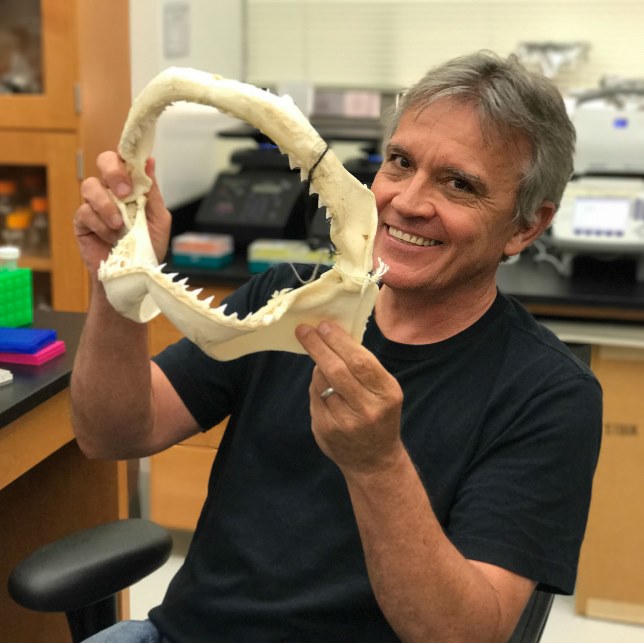 The Whitney Laboratory for Marine Bioscience
The Whitney Laboratory for Marine Bioscience

The Evenings at Whitney Lecture Series hosted by the University of Florida Whitney Laboratory returned for the fall season on Sept. 13, 2018, at 7 p.m. with the program titled “Sharks and Rays on the Brink - Half a Billion Years of Innovation Under Threat.” Gavin Naylor, director of the Florida Program for Shark Research at the Florida Museum of Natural History, shared about the diversity of sharks and rays and highlighted the many traits that make them unique. This free lecture was presented at Lohman Auditorium located at 9505 Ocean Shore Blvd., on the Whitney Laboratory campus.
Naylor has researched sharks and rays for more than 25 years, and during that time, he has worked to understand the evolution of these animals. There are approximately 1,200 known species of elasmobranch fishes, better known as the sharks, skates and rays. Sharks have been in existence for more than 400 million years, and rays have been around for approximately 150 million years. Understanding the evolution of sharks and rays is important to ensure the continued long-term survival of these animals that provide many positive benefits, including maintaining the stability of marine systems and helping solve future technological challenges.
Naylor joined the Florida Museum of Natural History at the University of Florida in 2017. He is also a research associate with the American Museum of Natural History. Naylor earned a doctorate in genetics from the University of Maryland. He also earned a bachelor’s degree in zoology from Durham University in the United Kingdom. He was awarded three fellowships, including the American Museum of Natural History Kalbfleisch Postdoctoral Fellowship in paleontology, University of Michigan Sloan Postdoctoral Research Fellowship in molecular evolution, and Yale University Postdoctoral Research Fellowship in developmental genetics.